Sudden vertigo attacks can be debilitating and frightening. If you experience spinning sensations, hearing loss, and ringing in your ears, don't ignore it. Understanding Ménière's disease is the first step to regaining control and improving your quality of life.
What are the main causes of Ménière's Disease?
- The exact causes of Ménière's disease are unknown, but it's strongly linked to an abnormal amount of fluid (endolymph) in the inner ear.
- Factors like improper fluid drainage, viral infections, abnormal immune responses, or a genetic predisposition are all thought to contribute to its development.
- It is also sometimes associated with head injuries or allergies, which can disrupt the delicate fluid balance required for normal inner ear function.
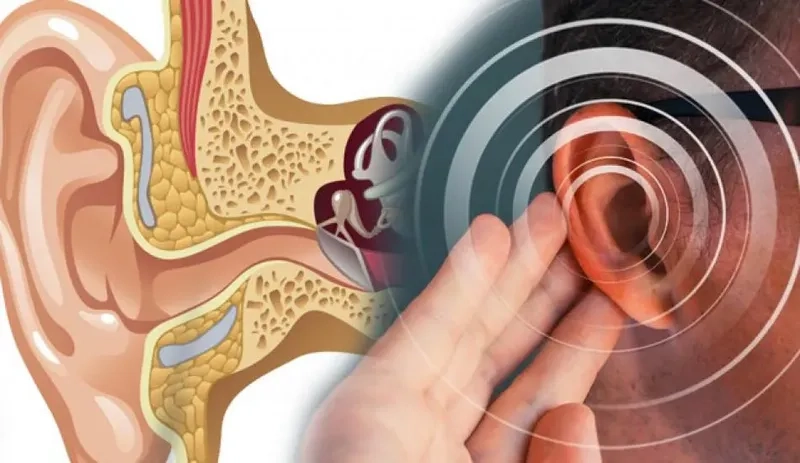
Key symptoms of Ménière's Disease to watch for
- Sufferers experience recurrent episodes of vertigo, a severe spinning sensation that can start and stop spontaneously, often causing nausea and imbalance.
- Fluctuating hearing loss is common, particularly with low-frequency sounds, which may become permanent over time as the disease progresses without proper management.
- A persistent ringing, roaring, or buzzing sound in the ear (tinnitus) and a feeling of pressure or fullness in the ear are hallmark symptoms.
How can you manage Ménière's Disease effectively?
- Adopting a low-salt Ménière's disease diet is crucial, as reducing sodium intake can help decrease fluid retention and pressure within the inner ear.
- Identifying and avoiding personal Ménière's disease triggers, such as caffeine, alcohol, stress, and fatigue, can help reduce the frequency and severity of attacks.
- Medications like diuretics can reduce fluid retention, while other drugs can help manage acute vertigo symptoms during an attack for better quality of life.
>>> Learn now: Cataracts explained - restoring clear vision with modern surgery
Image of the disease Ménière's Disease
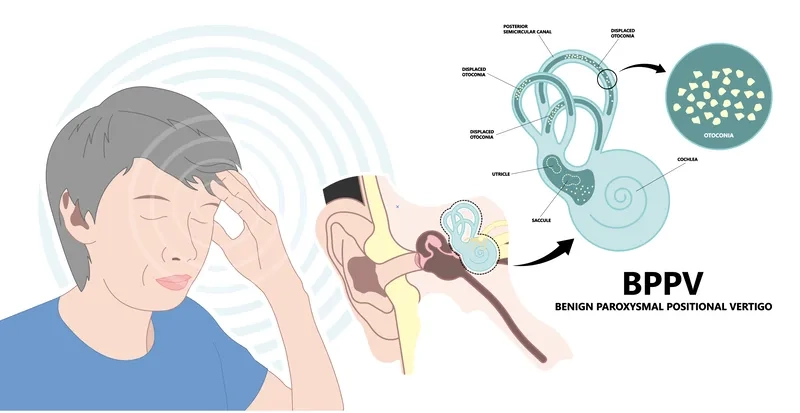

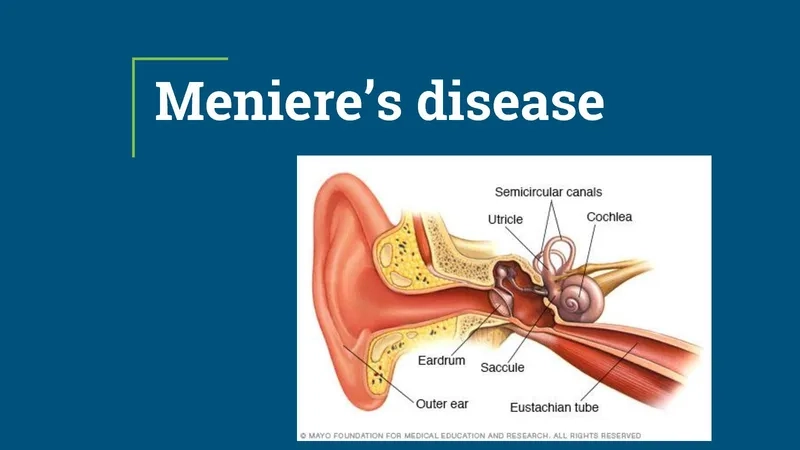
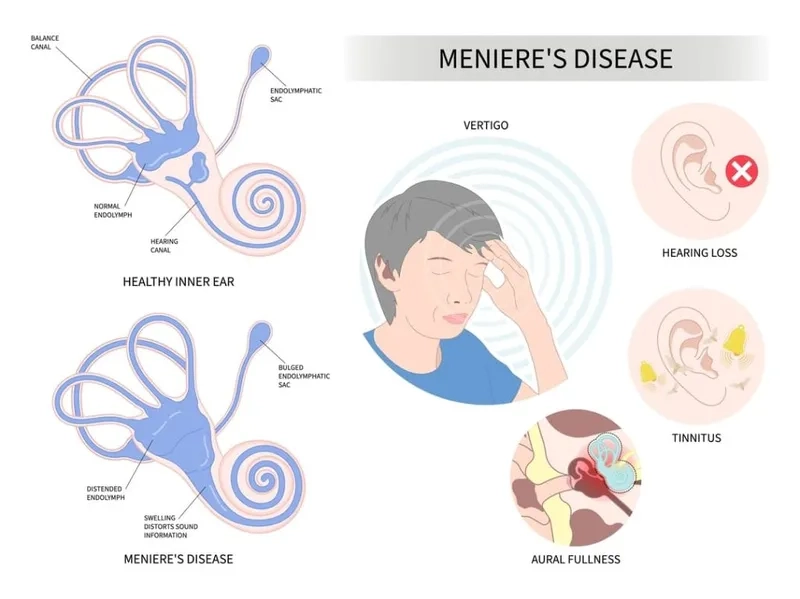
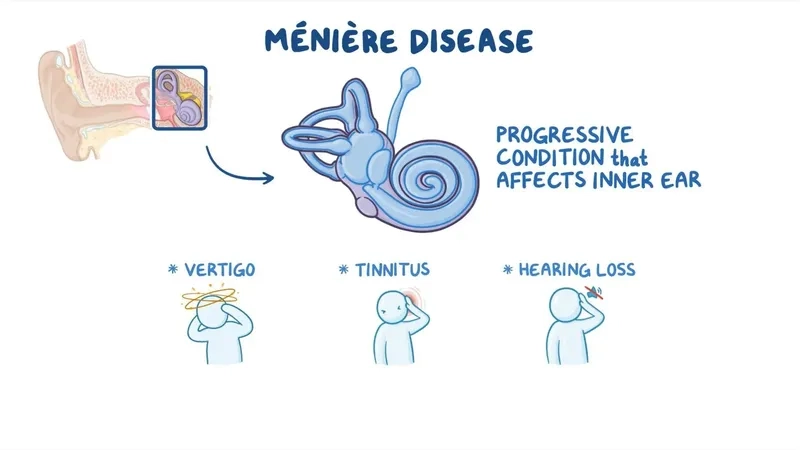
>>> Read more here: Managing chronic hearing loss - solutions for a richer life
While Ménière's disease is not curable, a combination of lifestyle changes and medical treatments can manage it. For a proper diagnosis and personalized plan, consult an otolaryngologist (ENT specialist).
>>> Discover more: Tinnitus relief - silencing the constant ringing in your ears



